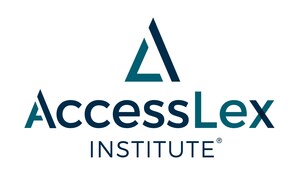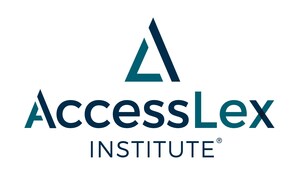Gallup and AccessLex Institute Release Part Two of Study on Law Students' Views of Distance Learning
Report shows students' thoughts of in-person and online program quality have improved.
WASHINGTON, May 18, 2022 /PRNewswire/ -- A new report released today by Gallup and AccessLex Institute, Law School in a Pandemic Year 2, has found that the gaps in program quality that law students said existed between online and in-person instruction narrowed considerably since 2021 when 76% of students taking classes mostly or completely in person rated their program as excellent or good vs. 51% of those taking even just half their classes online. In 2022, 78% of students who had returned to predominantly in-person classes rated their program as excellent or good – but so did 73% of who were hybrid and 72% of those who remained mostly or completely online. Also, students in hybrid arrangements were much more likely in 2022 (53%) than in 2021 (33%) to agree their J.D. program was "worth the cost," which tracks closely with the percentage of students taking all or most of their classes in person who said the same.
Prior to March 2020, only six law schools offered even a hybrid J.D. program and no ABA-accredited law school offered a completely online one, and then suddenly, almost every school did. But what did that mean for the law school experience? To find out, in Spring 2021, AccessLex and Gallup teamed up for a survey of law school students to get their perceptions of distance learning during the COVID-19 pandemic. Perhaps not surprisingly, most students who participated had a somewhat negative overall view of their experience. It was not what they signed up for and it took the form of an emergency measure.
In 2022, AccessLex and Gallup reinterviewed 820 of the students who participated in that first survey to see how their recent experiences and opinions of online J.D. classes may have changed from their initial feelings about the switch to distance learning now that most have returned to in-person classes. And, the findings do show more favorable impressions as their online courses are now more likely to be strategically executed as opposed to impromptu offerings. Along with improved attitudes toward program quality, the percentage of students in 2022 who agreed their professors were using teaching methods that engaged them had risen since the 2021 study, regardless of instructional mode. In 2021, 51% of students whose classes remained mostly or completely in-person agreed with this statement, vs. 45% of those split evenly between in-person and online classes and 48% of those who were mostly or completely online. In 2022, 60% of those whose classes were all or mostly in-person agreed their professors used teaching methods that engaged them, as did 57% of students in hybrid arrangements and 56% of those who remained mostly or completely online.
"It is heartening to see the upticks in positive responses to so many of the aspects of distance learning that are already common practice in legal education," said Stephanie Marken, Executive Director for Education Research at Gallup. "For a transition that was thrust wholly without warning on both law schools and their students, there is undeniably reason to believe that well-considered online options are more an opportunity than a threat to the law school experience and value proposition."
The 2022 survey also included several new questions gauging the extent to which students felt the online format itself influenced their participation in class. Students were more likely to agree they felt "emotionally drained" after online classes (63%) than in person (48%), and students were much less likely to feel they were able to "participate fully" in online classes (48%) than in in-person classes (84%). These findings highlight the importance of finding strategies for promoting student engagement in distance-learning situations.
"Although the 820 students interviewed for both the 2021 and 2022 studies comprise only a small sample of law students and cannot be generalized, the shifts in their perceptions year over year are illuminating and useful," said Tiffane Cochran, Vice President of Research at AccessLex Institute. "They demonstrate the potential of what law schools can achieve when given sufficient time to adapt, prepare and set reasonable expectations when retooling brick-and-mortar experiences for the virtual environment. That's to be applauded and will hopefully promote continued study and evolution of the ways a legal education is delivered."
Read the report here.
About Gallup
Gallup delivers analytics and advice to help leaders and organizations solve their most pressing problems. Combining more than 80 years of experience with its global reach, Gallup knows more about the attitudes and behaviors of employees, customers, students, and citizens than any other organization in the world.
About AccessLex Institute:
AccessLex Institute is a nonprofit organization committed to helping talented, purpose-driven students find their path from aspiring lawyer to fulfilled professional. In partnership with its nearly 200 Member law schools, improving access and positively influencing legal education have been at the heart of the Company's mission since 1983. AccessLex Institute is headquartered in West Chester, PA. Learn more at AccessLex.org.
CONTACT: Julie Solomon, [email protected]
SOURCE AccessLex Institute

WANT YOUR COMPANY'S NEWS FEATURED ON PRNEWSWIRE.COM?
Newsrooms &
Influencers
Digital Media
Outlets
Journalists
Opted In






Share this article